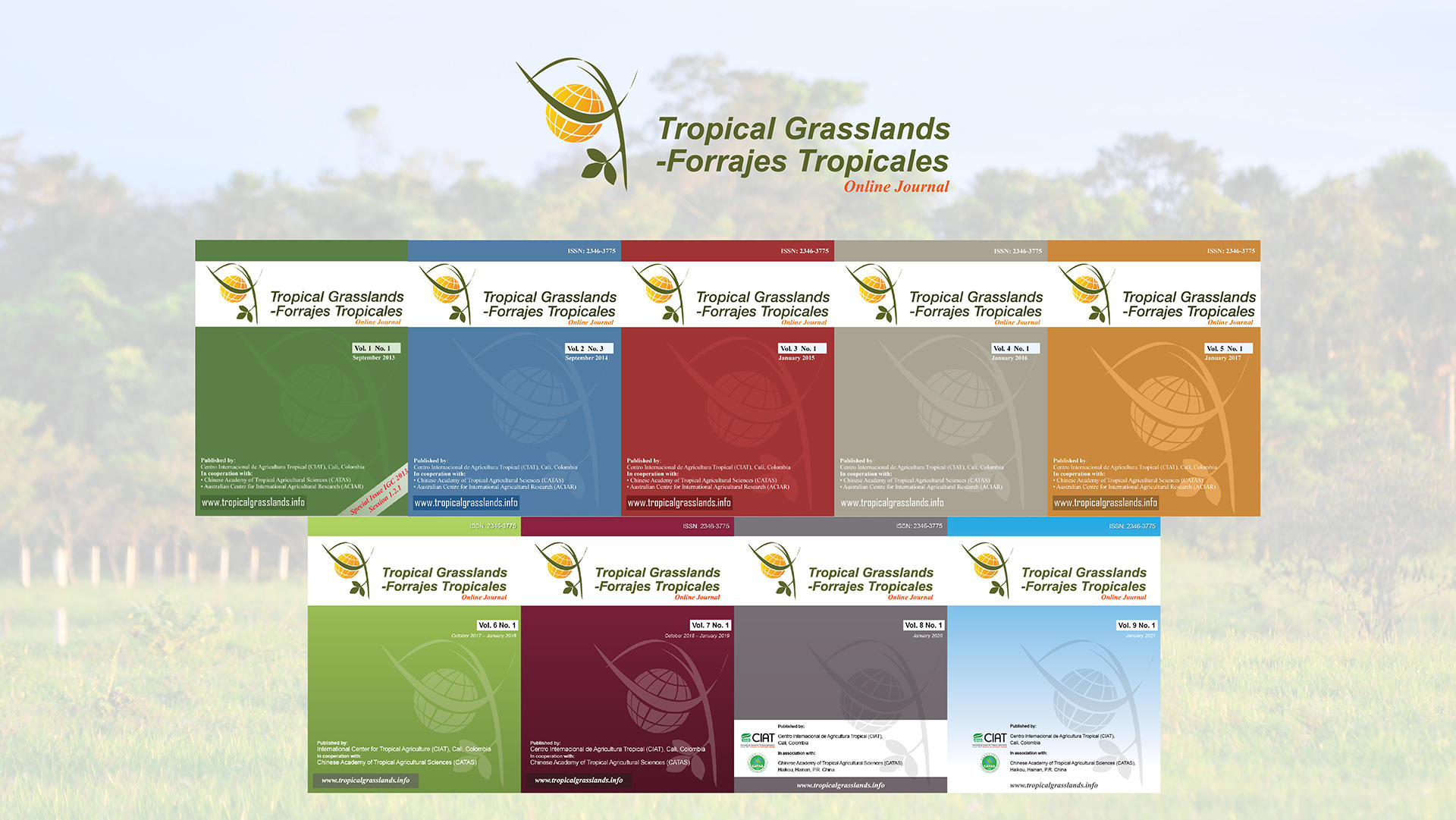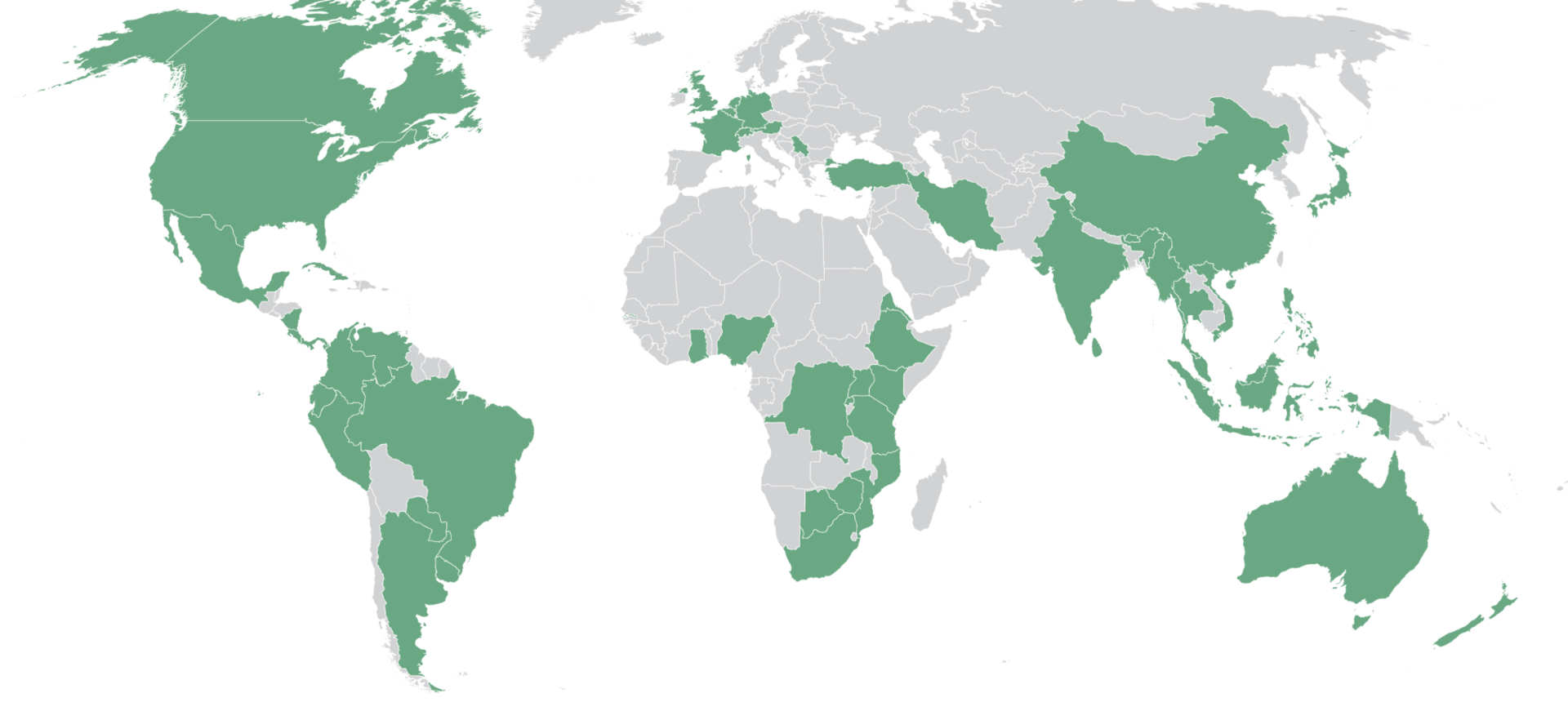Past, present, and future of the Tropical Grasslands-Forrajes Tropicales journal

The Tropical Grassland Society of Australia started publishing the Tropical Grassland journal in 1967, and it has been an important means to disseminate the work of authors from different countries on research and development concerning the assessment, management, and use of pastures and forage crops in tropical agriculture, as well as reviews on such issues.
Over its 44 years in print, until 2010, a total of 160 issues were published, 18 of which were conference proceedings on tropical grasslands. On the other hand, the International Center for Tropical Agriculture (CIAT) started publishing the Pasturas Tropicales (Tropical Pastures) journal in 1979, initially targeting a Latin American audience, as a newsletter. The scientific publication became increasingly important, and from 1986, its eighth issue was published as a print journal until 2007.
With this background, CIAT started publishing the online journal Tropical Grasslands-Forrajes Tropicales in 2012, as the successor of the previous journals. The name of this journal highlights both its bilingual nature (English and Spanish, with abstracts in both languages) and its commitment to continue with the tradition of its ancestors. In addition to the bilingual nature of the journal, it is completely open access, peer-reviewed, and guided by an Editorial Committee integrated by the leading tropical forage scientists worldwide. From its early stages and until last year, the journal had two renowned editors, Rainer Schultze-Kraft (Emeritus Scientist at CIAT) and Lyle Winks (former editor at Tropical Grasslands). Without their commitment, ideas, and work ethics for nearly 10 years, the creation and continuity of the journal, with increasing standards and distribution, would not have been possible.
As of June 2021, Tropical Grasslands-Forrajes Tropicales had published 334 papers. These included 177 in special issues (115 contributions to the 2013 International Grassland Congress and 62 contributions to the 2018 International Leucaena Conference), and 157 in regular issues. Furthermore, the journal is indexed in the main abstract and citation databases of peer-reviewed literature:
• The main collection from Science Citation Index Expanded and two additional indexes from Clarivate Web of Science, which provides the well-known impact factor indicator.
• The journal is also indexed in Scopus and its CiteScore (the mechanism by which Scopus measures the impact of its indexed journals) for 2020 was 1.50.
• SCImago Journal & Country Rank, a site that includes scientific journals and indicators drawing from the information contained in the Scopus® database, classified the Journal in the second highest quartile (Q2) within the set of agricultural journals.
• The Journal is also indexed in SciELO, the largest bibliographic database, digital library, and open access journal set in Latin America, which provides an efficient way to increase the visibility and access to scientific literature.
• The Journal is classified as “A2” in the National Bibliographical Index (Publindex) from the Colombian Ministry of Science, Technology, and Innovation.
• The Journal was also included in Latindex, a network of institutions working together to gather and disseminate information from serial scientific publications produced in Latin America.
• Other directories and databases where this Journal can be found include: Sherpa RoMEO, MIAR, EBSCO, ROAD, AGRIS, CABI, DOAJ, and Google Scholar, with an h index of 20.
With a mission to bring high-quality knowledge on tropical forages to a wide group of stakeholders in the tropics, and make it accessible to the least developed countries, 78% of 1,837 authors who have published papers in the journal come from the global tropics (Africa, Asia, and Latin America). Altogether, authors from 52 countries have published papers in the journal so far.

Home countries of authors published in the Journal as of June 2021.
Currently, the Journal is undergoing a transitional period towards embracing new editors: Dr. Jean Hanson, as English editor, and Dr. Danilo Pezo, as Spanish editor. They have both worked at ILRI for many years, and have a long and extensive expertise in tropical forages. Jean Hanson is an Emeritus Member of ILRI in Ethiopia, and Danilo Pezo is currently working at CATIE in Costa Rica. The new editorial team will continue to count on the support of José Luis Urrea, Communications Specialist at the Alliance of Bioversity International and CIAT in Colombia.
The new editorial team will work on the further modernization of the Journal, including a fully automated process to send and review papers. Further efforts will be undertaken to enhance the quality and number of contributions, as well as the reach of the Journal towards the Global South, particularly Asia and Africa. Moreover, an assessment will be carried out to increase the French-speaking audience, to make Tropical Grasslands-Forrajes Tropicales the main reference on tropical forages worldwide.
Look for our next issue on 30 September.
